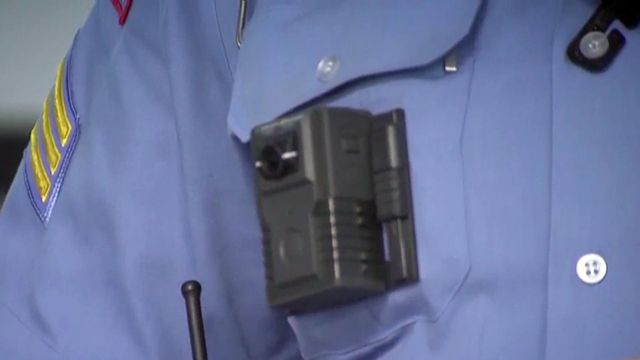Some question new Raleigh police body-cam policy of plenty video, no audio
A new Raleigh Police Department policy for officers' body-worn cameras following a recent fatal shooting in which an officer never turned his camera on is quickly meeting with criticism.
Posted — UpdatedOfficer W.B. Edwards shot and killed Soheil Antonio Mojarrad at an east Raleigh shopping center on April 20, but his body camera wasn't on at the time of the shooting. The department's former policy gave officers some discretion when activating their cameras.
Less than a week after the shooting, Police Chief Cassandra Deck-Brown mandated a change in the policy so that body cameras would always be recording video without audio, even if an officer doesn't manually activate it.
"A benefit of [this] will be the ability to capture activity using any tool the officer has available (i.e., hands, baton, pepper spray, etc.) because the camera would always be passively recording," Deck-Brown wrote in a memo to the City Council this week to inform them of the change.
The police department considered three alternative recording solutions as a means of preventing human error, she said.
"The Raleigh Police Department is always seeking and identifying best practices for the deployment of our resources, personnel and equipment," she said.
Some people questioned the decision to have body camera video with no audio as the best solution, however.
"That reminds me of Charlie Chaplin, so you have to figure out or assume the plot," Bishop Darnell Dixon Sr. of Bible Way Temple in Raleigh said Wednesday.
Dixon has been part of the community outcry for more transparency following other Raleigh police shootings.
"The policy with no volume is translucent. What we are asking from the police is transparency. The difference is, [with] transparency, you see clearly," he said.
"I believe this is kicking the can down the road," Dixon added. "When you bring something to the public, it should be absolute and complete, and the majority should agree."
Raleigh police didn't respond to requests for comment on the new policy.
Mojarrad, 30, was shot after Edwards responded to a call about a cellphone stolen from a convenience store in a shopping center off Rogers Lane.
The department's preliminary findings said that Mojarrad advanced toward Edwards with a knife in his hand and refused commands to drop it, prompting Edwards to fire multiple times.
Because Edwards' body camera wasn't on and his patrol car dashboard camera wasn't in position to record the encounter, the only account of what happened that night came from Edwards himself.
Raleigh resident Marissa Rice said police body cameras need to have video and audio.
"Everybody is recording everything," Rice said. "Everything is coming out. I mean, there could be something that the officer might want us to hear."
Pete Rubino of Carolina Safety Resource Group, who has been in public safety for 30 years, agrees that a more complete account of police encounters will generally help the officer.
"We want to be able to hear the officer give the commands," Rubino said, adding that he will give Deck-Brown and her staff the benefit of the doubt regarding the policy they're implementing.
"I think we need to keep the politically correct decision out of the formula and allow the police department, the chief of police who knows what the officers encounter evert day to make the decision on what’s best for the public and the officer," he said.
Related Topics
• Credits
Copyright 2024 by Capitol Broadcasting Company. All rights reserved. This material may not be published, broadcast, rewritten or redistributed.






